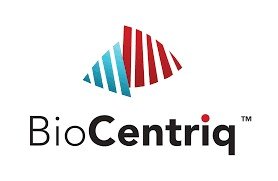GC Cell has signed an agreement to transfer the processing technology of its flagship anticancer immune cell therapy, Immuncell-LC Injection, to BioCentriq, its U.S. affiliate, and a cell therapy CDMO company.

Through this process technology transfer cooperation, GC Cell and Biocentriq expect to provide the production process technology, quality test methods, and know-how of Immuncell-LC Inj. and confirm its reproducibility, laying the foundation for future entry into the North American market, GC Cell said Monday.
"Due to the safety and effectiveness of Immunecell-LC Inj., which has been applied to more than 10,000 cumulative patients since its launch as a cell therapy for liver cancer, many pharmaceutical and biotech companies have already expressed interest in global licensing and strategic collaboration at JPM Healthcare 2024," GC Cell CEO James Park said. "We expect this collaboration with BioCentriq to be a bridgehead to enter the North American market. We will meet with the U.S. Food and Drug Administration (FDA) later this year."

Jennifer Manning, Chief Commercial Officer at BioCentriq, said, "BioCentriq is excited to collaborate with GC Cell to bring our proven autoimmune cell therapy, Immunecell-LC, to the North American market. This partnership will further our mission to bring hope to cancer patients.”
Details of the technology transfer agreement are confidential by agreement of both companies.
Immuncell-LC Inj. is an anticancer immune cell therapy that has demonstrated efficacy in solid tumors (liver cancer) and has been granted orphan drug designation (ODD) by the FDA for treating liver, brain, and pancreatic cancers. Immunecell-LC is composed of autologous blood-derived T lymphocytes, which are isolated from the patient's blood and cultured for two to three weeks to enhance the function of killer cells.
It won approval for post-surgical treatment of liver cancer after a large phase 3 trial in patients with early-stage HCC demonstrated a 37 percent reduction in the risk of recurrence and a 79 percent reduction in mortality compared to the control group, with no serious adverse events. More recently, data from 10,000 cumulative treatments was obtained.
Related articles
- GC Cell’s US affiliate wins fast-track designation for lupus nephritis treatment candidate
- [JPM 2024] GC Cell CEO reveals ambitious plans for global expansion and innovation in CGT
- GC Cell completes $29 million Series A funding for BioCentriq
- GC Cell, Lunit partner for CAR-NK cell therapy development with AI
- GC Cell submits 1st IND for CAR-NK cell therapy in Korea
- GC Cell recruits NeoImmuneTech’s former global strategy head as CDO

